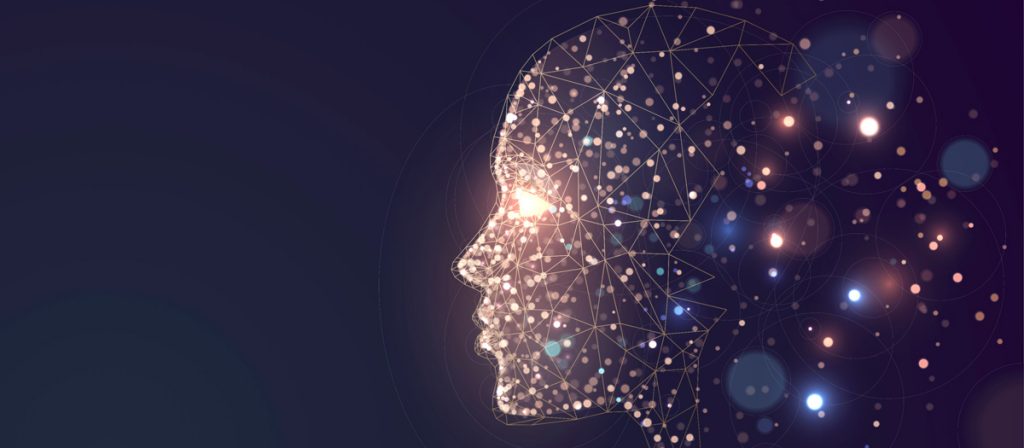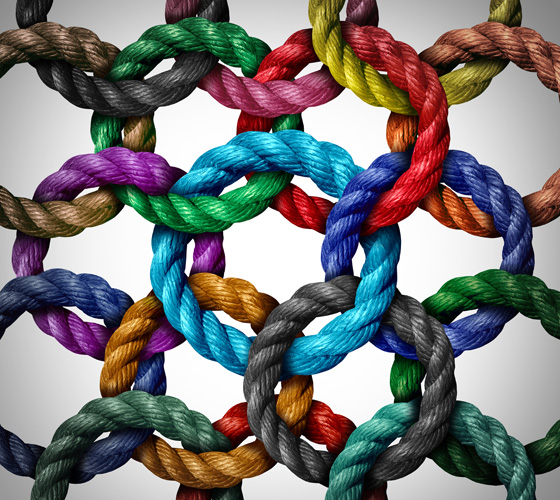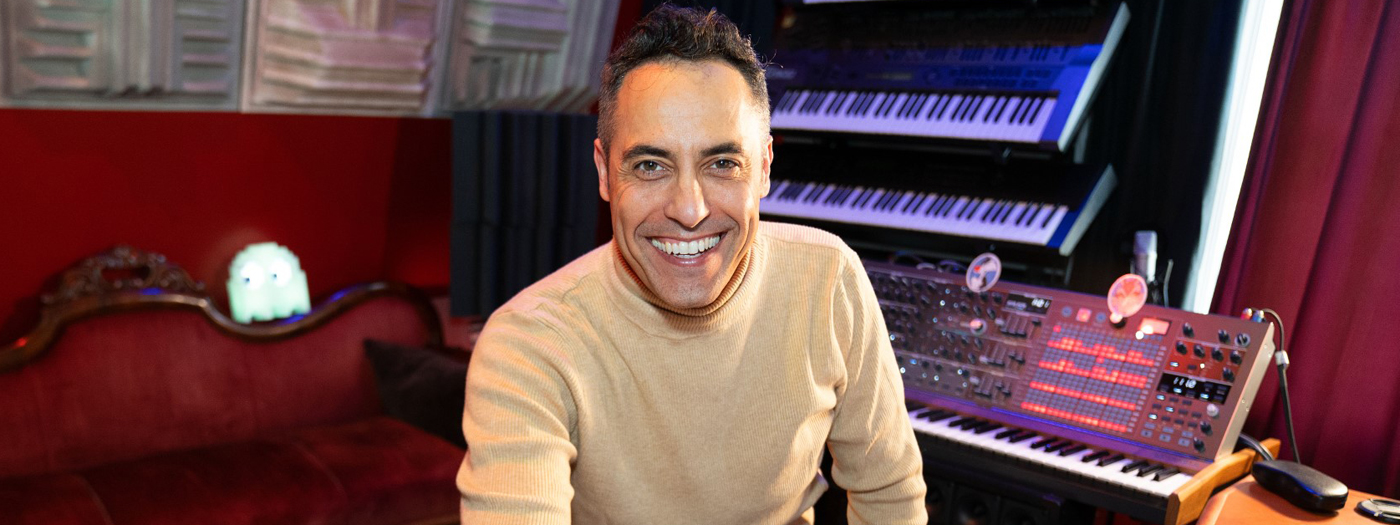Tom Salta: Mental Fitness for Creatives
by Tom Salta
It might seem strange that someone with a 30+ year professional career in the music industry is posting about mental health or, as I prefer to say, “mental fitness.” I’ve had an incredible journey that’s still going strong, starting in 1990 when I toured with with the “King of R&B,” Bobby Brown, then into record production, songwriting, a solo album, and eventually composing and scoring AAA Video Games such as Deathloop, the Halo series, the Tom Clancy series, Wolfenstein and many others.
My primary motivation for writing this is that I feel that the topic of mental health and wellness has remained in the shadows for far too long. “Mental health” has carried a stigma in our culture—a culture in which money, power, success, and productivity typically take precedence. Here, I’d like to shift the focus to personal well-being and understanding the true cost of neglecting it or “brushing it under the carpet.”
The 2020s have been challenging for us all, marked by the devastating impacts of the pandemic and the ugly divisions often exacerbated by social media, cable news, and politicians. Despite the hardships, it is possible to maintain mental resilience and find solace. Throughout my journey, I discovered strategies that help me remain centered, focused, and creative daily.
My purpose in writing this post is to share some “tips for the road” that may be of value to you in maintaining balance and positivity throughout your life—no matter what adversities you face.

Root Causes
As I delved into the topic of increasing anxiety and depression in society, I found myself pondering its root causes.
In the past 50 years, institutions such as national and local governments, the legal system, the education system, churches, the military, and even family and marriage have experienced a loss of authority and focus. This disintegration leaves the media and business world to provide a sense of daily meaning for some. Relying solely on these sources is insufficient, leading to fragility and instability.
Scientists have identified various causes of depression, many of which resonate with our current predicament. For example, the disconnection prevalent in our materialistic culture, the pressure to meet unrealistic expectations, and even the impact of our diet and processed foods all affect our mental health. Moreover, the constant sensory overload in today’s hyper-connected world leaves little mental downtime.

Beyond these personal factors, societal elements play a significant role in exacerbating our anxiety. Divisiveness and polarization have intensified, permeating our country and destroying relationships—and the pandemic and the urgency of addressing human-caused climate change further add to our overwhelming challenges.
Amidst these concerns, I find consolation in the power of perspective. As Albert Einstein wisely stated, “The most important decision we can make is whether we believe we live in a friendly or hostile universe.” This reminds me that a critical part of the solution lies within ourselves and our point of view, which is precisely that: a view from a point.
What is Your Lens?
We view the world through a lens, and none of our lenses are perfectly clear. It’s important to ask: What perspective do I hold? Do I see the world as a hostile place where survival of the fittest is paramount? Or do I view life as an opportunity to love, help others, and bring light into the world?
One indication of the clarity of our lens is the extent to which we feel universal compassion and acceptance toward more people. Do we believe every human being was created with the same dignity as everyone else? A sense of oneness brings peace and reduces anxiety, in contrast to the constant battle of “us versus them” and the need to dominate or prove the correctness of our beliefs.
Mental Resilience
I once heard a Navy SEAL, who wrote a book on mental resilience, say that he changes his mindset whenever he faces a challenging situation with an uncertain duration. Instead of trying to “hold on” until the crisis ends, he mentally prepares himself for the long haul. He advised not to wait for tough times to pass, but to accept that they may persist. It’s about embracing the long game and adjusting our mindset to fully operate and coexist with difficulties.
I also once heard an insightful interviewer ask a Buddhist monk how he responds when suffering enters his life. His answer was profound: “Welcome.” Accepting that suffering is an inherent part of life enables us to let go of our constant need for control, bringing a profound sense of liberation. This reminds me of Winston Churchill’s famous saying, “If you are going through hell, keep going.” It’s akin to the Serenity Prayer, often attributed to Saint Francis but actually written by Dr. Reinhold Niebuhr in 1932. The prayer says, “God, give me the serenity to accept the things I cannot change, the courage to change the things I can, and the wisdom to know the difference.”

Sleep is a Superpower
Getting enough sleep has significant benefits. While some boast about functioning on minimal sleep, this argument is losing scientific credibility. The truth is, inadequate sleep catches up with you and can have detrimental effects.
One essential key to managing my work and creativity is prioritizing sufficient sleep. I avoid staying up late or pulling all-nighters as every extra hour I work late steals hours from the next day, resulting in a disproportionate loss of productivity. When I adhere to a schedule, my productivity increases exponentially during focused work periods. Getting enough sleep is paramount for both productivity and creativity, allowing us to perform at our best—physically and mentally.
Recent scientific evidence suggests the minimum sleep requirement is eight hours. It has also shown that even seven hours of sleep can raise the risk of certain cancers and health issues. For a deeper understanding of this topic, I recommend Dr. Matthew Walker’s enlightening TED Talk titled Sleep Is Your Superpower:
Meditation
I found incredible benefits from meditation, backed by science and personal experience. Within a year, I witnessed significant increases in creativity, confidence, elevated mood, energy levels, patience, and memory. Everyone around me noticed the positive changes. I firmly believe if everyone dedicated 20 minutes a day to silent meditation, many of the world’s problems could be solved. There are numerous meditation techniques to choose from, and I personally practice Centering Prayer. In her brief TED Talk How Meditation Can Reshape Our Brains, neuroscientist Sara Lazar presents some supporting scientific information:
Nutrition
Nutrition plays a vital role in maximizing both physical and mental well-being. Genetically modified foods, excessive pesticide use, and processed food consumption are prevalent in the United States. To enable our bodies to function optimally, we should eat a variety of colorful foods, as they help our bodies heal and eliminate toxins. Eating green leafy vegetables, rich in chlorophyll and disease-fighting properties, is crucial. I even grow my own lettuce indoors using an aeroponic garden, providing a constant supply of fresh, healthy greens.
Exercise
Exercise is an important aspect of overall well-being, both physically and mentally. Personally, I struggle with maintaining consistency with exercise. My brother-in-law shared a valuable tip, greatly improving my consistency during the winter. I set up my recumbent bike in front of a large screen in my basement, allowing me to combine exercise with one of my favorite activities: gaming. This ingenious setup not only makes the time fly by but also lets me catch up on gaming while staying active. The key takeaway here is to find enjoyable ways to exercise so it becomes fun and sustainable.
Cold Showers?!
A surprising little trick for combating anxiety and depression is taking cold showers! Cold showers can stimulate your immune system, boost alertness, prevent colds, and even kick your mind and metabolism. The real superpower here is their ability to stimulate those mood-lifting hormones. Yup, they can help with anxiety and depression. So, why not mix things up a bit? Instead of always going for the steamy hot showers, throw in some cold ones every now and then. Just find a temperature that gives you a refreshing jolt—but no heart attacks, please!

Socializing
The key to keeping my sanity intact during the COVID ordeal was my incredible “Fun Crew.” We made a non-negotiable weekly tradition to gather our small group to share laughter, sip on drinks, and simply enjoy each other’s company. Humans are social beings, even introverted types. Socialization isn’t just a preference—it’s a necessity. A positive outcome of the pandemic has been the normalization of video calls. Today, many scheduled calls become video calls, creating a stronger sense of connection. I’ve enjoyed connecting with my friends, family, colleagues, students, and mentees this way.
Humans Need Consistency
In a world filled with chaos, we crave consistency. I find peace and a sense of control by establishing firm daily routines. Here’s a glimpse:
I make my bed, a habit I learned from a compelling commencement speech by a Navy SEAL. This gives me a sense of accomplishment from the moment I wake up, setting the tone for the day. Then, I meditate for 20 minutes, enjoy a morning coffee while chatting with my spouse, and briefly check my emails for urgent matters. With my 32oz cup of water in hand, I head to my studio, leaving my phone behind. I prioritize work without interruptions until lunchtime, when I take a break to watch an enlightening TED Talk or lighthearted show. Returning to the studio, I continue working until dinnertime.
Evenings are dedicated to quality family time and relaxation. If necessary, I may return to the studio briefly for urgent deadlines. Around 9:00 PM, I start winding down, watching something soothing on my iPad with headphones, engaging in non-fiction reading, and using a brainwave app to induce relaxation and prepare for sleep. I conclude my day with prayer or spiritual reading before going to sleep. This consistent routine trains my brain and body to function like a well-oiled machine, ensuring I start each day at full capacity.
De-Clutter
During the pandemic, I read a book on decluttering: The Life-Changing Magic of Tidying Up by Marie Kondo. A tidy space leads to a clear mind, but Kondo takes it to the next level. She suggests we only keep items that bring us joy. She applies this to everything we own, including our clothes. I gathered all my clothes in a massive pile, categorically sorted through each article, and only kept things that brought me happiness. I even created my own version of Kondo’s method for folding clothes and found genuine pleasure in the process. Now I can open my closet and drawers and see every piece of clothing I own at once.
The audio book is here:
Emails
Let’s address the notorious issue of email clutter. It’s a global epidemic, and we all constantly battle our inboxes. We treat them as never-ending to-do lists, struggling to keep up. A big mental switch happened when I realized that top-performing individuals live every moment of their day intentionally, not merely reacting to the needs of others. I like the saying, “The important things are seldomly urgent, and the urgent things are seldomly important.”
I finally developed a system allowing me to start and end each day with a “zero inbox” using a tool called SaneBox. It acts as a powerful filter, leaving me with emails I can swiftly act on, assign to a task list, or “star” for later attention. Removing clutter and the feeling of never catching up is liberating, relieving anxiety and stress.
Schedule Everything
Planning my days in advance using my calendar and tools like Calendly has been invaluable. I live by my calendar, schedule everything, and avoid reactive responses to unexpected events. By organizing my time, I avoid overbooking or “under-booking” myself, ensuring I can efficiently manage my work and meet deadlines. Calendly serves as a virtual personal assistant, allowing others to schedule events based on my availability.
One Thing at a Time
As Archbishop Desmond Tutu wisely said, “There is only one way to eat an elephant: one bite at a time.” This notion of taking things one step at a time holds profound wisdom. Daunting and overwhelming tasks can be achieved gradually by focusing on small portions. Personally, I dedicate specific time or even entire days to single tasks, combining this approach with pre-planning my schedule in advance. It helps me effectively manage my workload.

Be Kind to Yourself
Making ourselves happy is often a low priority. For some reason, we often feel guilty about self-care or treating ourselves. It’s time to change that. Learn to be your own best friend and listen to your internal dialogue. Treat yourself from time to time simply because you deserve it. Create a space that brings you joy. Learn to say “no” to things that don’t bring happiness. Engage in passion projects that bring you joy. Remember to prioritize your happiness and be kind to yourself. “Yourself” will thank you.
Relax
Discover what relaxes you and takes you to your happy place. During the height of the pandemic, I remember Playing Animal Crossing, which brought me some well-needed relaxing escapism. In recent years, gardening has become an activity that helps me center and connect with nature. Whether painting, reading, or engaging in any other activity you love, prioritize self-care and relaxation. It benefits you and enhances productivity and work quality. Learn to relax and take care of yourself. It’s essential.

Professional Help
Before I end this post, I’d like to address two important points: Firstly, there’s no shame in seeking professional help, such as speaking to a psychotherapist. It’s not a sign of weakness but rather an opportunity to benefit from someone who can listen and ask the right questions. Secondly, even if we follow all the right practices, chemical imbalances or prolonged anxiety can affect our brain’s functioning. It’s worth discussing this with a doctor to explore potential treatments that might offer short- or long-term solutions. The exciting news is that the brain has the capacity to heal itself, contrary to the belief that once damaged, it remains that way. Remember, you’re not alone—options are available to help you feel like yourself again.
Conclusion
I hope you will find some of the insights and tips here helpful. For me, these practices have been game-changers. Remember, the world needs your authentic self, so please be good to yourself, pursue what you love, and make this world a better place.

Tom Salta is one of the most versatile and prolific music artists/producers working in film, television, advertising, and video games. He has received widespread industry acclaim for his world-class produced hybrid scores featured in film, television, and video games, including the award-winning Arkane Studios’ game, Deathloop.
Related posts
Leave a Reply
You must be logged in to post a comment.
By submitting your details you are giving Yamaha Guitar Group informed consent to send you a video series on the Line 6 HX Stomp. We will only send you relevant information. We will never sell your information to any third parties. You can, of course, unsubscribe at any time. View our full privacy policy





Prioritizing our own happiness is frequently disregarded. For some unknown reason, we frequently experience guilt when it comes to self-care or indulging ourselves. It’s about time we alter that mindset. Acquire the ability to be your own closest companion and heed your inner thoughts. Indulge in self-treats occasionally simply because you are worthy of them. Establish an environment that fills you with joy. Learn to decline things that do not bring happiness. Engage in projects that ignite your passion and bring you joy. Always remember to prioritize your happiness and show kindness to yourself. “Yourself” will express gratitude to you.